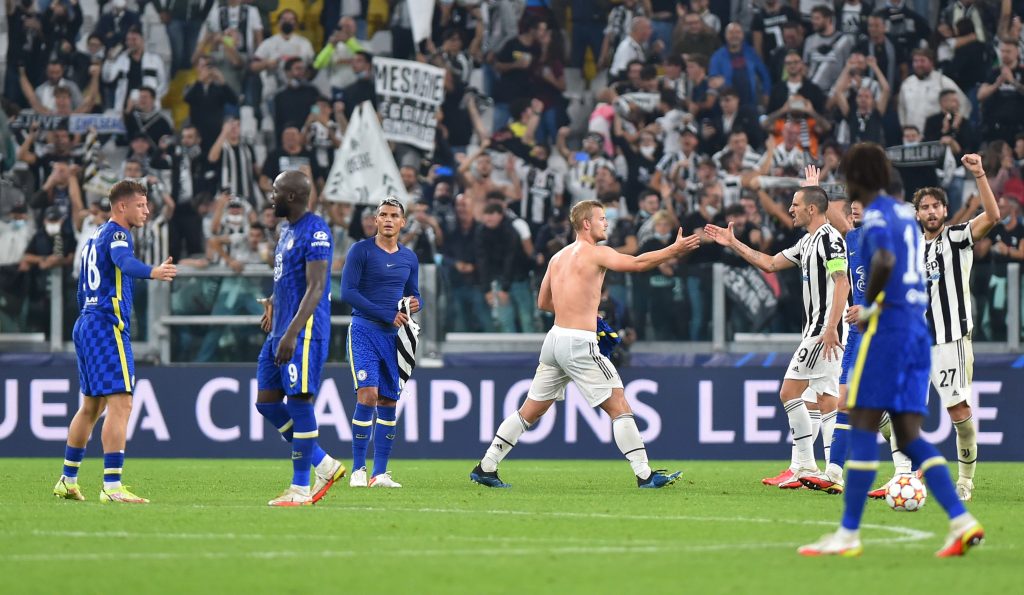Many a football supporter relates to Bob Marley and The Wailers’ Three Little Birds and its reassuring line “every little thing gonna be alright”. For most fans the early stages of a new season harbour a mixture of hope and trepidation.
Three Little Birds has echoed around Ajax Amsterdam’s Johan Cruyff Arena for over a decade. Now the sentiments are sewn into the fabric of their new jersey, which features three small birds and the manufacturer’s iconic stripes contrasting in the red, gold and green colours of Rastafarianism on the black kit.
This meeting of football and black sound cultures is truly global. Back in the UK – where the Ajax association was born – in 2019 Coventry City released a black-and-white checked kit and a range of merchandise to commemorate the Two Tone scene – established in Coventry in the late 1970s as a multiracial youth movement combining Jamaican ska, British punk and anti-racist politics.
Similarly in 2019, the yellow and black stripes on Manchester City’s jersey paid homage to the Hacienda, a foundational nightclub in bringing African American electronic music to Manchester in the 1980s.
The designs of these official kits represent just one element of the relationship between football cultures and forms of black music. In our research we explore the history of these sonic threads and demonstrate that the stories they tell are often more complex than those woven into these kits.
Crowd noise at Test Match cricket has long demonstrated the importance of sound and sport to migrant communities in the UK. At matches you’ll hear steel pans, horns and chants articulating cultural identity as much as team support. The story of football, music and the migrant experience, however, is less well known.
The ground-breaking London is the Place for Me collections by Honest Jon’s record label include several football calypsos documenting the sport’s ever-present place in the migrant experience. While cricket-based calypsos focused primarily on the wider British Caribbean experience, football calypsos tended to be localised. This can be heard in songs like The Manchester Football Double and the Manchester United Calypso, which celebrate the wealth of the city’s football heritage.
In subsequent generations, reggae narrated and soundtracked aspects of the football experience. The first reggae track on football was Clement Bushay Set’s Football Reggae in 1972, which included crowd noise, and celebrated both Derby County’s title triumph and the playing styles of various other professional teams. Like many other early songs from this period it was a tale of love between football and its fans in the Carribbean diaspora.
However, in the 1970s and 80s, reggae’s music and messages evolved becoming more critical, presenting listeners with assertive black, post-colonial political statements. This can be seen in LP artwork of the more dub-styled internationally-focused Scientist Wins the World Cup in 1982, which shows a cartoon of a fictional all-black team beating England in the World Cup Final.
Dennis Alcapone, the Jamaican DJ, recorded World Cup Football in 1981. It was a year of uprisings in multicultural communities around England such as the Brixton uuprisings, which were the result of rising tensions between the local community and the police. Alcapone used his lyrics to celebrate the legendary Brazil team of that era, while also calling on the then England manager to pick black players such as Cyrille Regis and Garth Crooks.
This move into the national football arena was replicated by Asher Senator, who also proposed an all-black England team in the Big Match from 1985, another year of black British rebellions. The British reggae artist Macka B situated these trends within the wider African diaspora, penning songs about the Cameroonian and Jamaican World Cup teams in the 1990s.
These songs show how the historical connections between football and reggae are complex. Earlier songs often involved black music being appropriated or assimilated for the benefit of fans or record producers. They are usually without critique and full of celebration. Later tracks represent black resistance to white power structures in sport and society.
In 2021, football fleetingly dominated the national consciousness with England reaching the final of Euro 2020. The team were a shining testament to the diversity of England, full of players willing to speak out for what they believed in and giving voice to a more inclusive football culture.
This was demonstrated by players taking the knee against racism before every match – despite much pushback. They brought the country together in a celebration of the regional multiculturalism of England. Football’s TV coverage has echoed this sentiment in recent years, featuring dynamic associations between football and the sounds of multicultural England. This is reflective of the history of the sport’s relationship with reggae and calypso in decades before.
Black British rapper Ms Banks’ World Cup rap featured throughout the BBC’s coverage of the 2019 women’s tournament. ITV’s main theme for Euro 2020 was Michael Kiwanuka’s You Ain’t The Problem; while rapper Ocean Wisdom’s “Don” flowed across their coverage too. Hip-Hop duo Krept and Konan also recorded Ole (We are England ’21), with an accompanying video featuring Wembley Stadium and Grenfell Tower.
These newer links between football and black music cultures hint at how future generations may tell our contemporary national stories and find both celebration and resistance in the sounds of our times. While some on the football terraces are audibly polarised, it is the confidently assertive multicultural footballers and music artists, leading hopes on the pitch or soundtracking our lives beyond the stadium, who allow us to collectively experience the anxieties and dreams that echo around the beautiful game.

